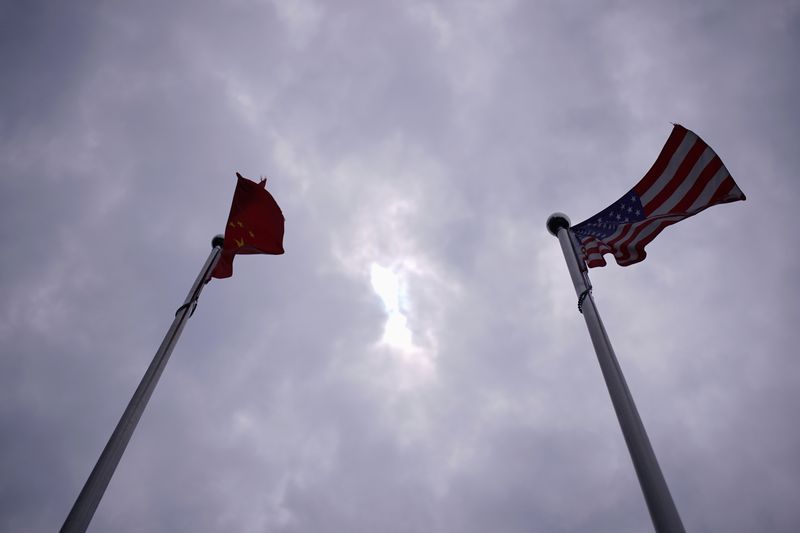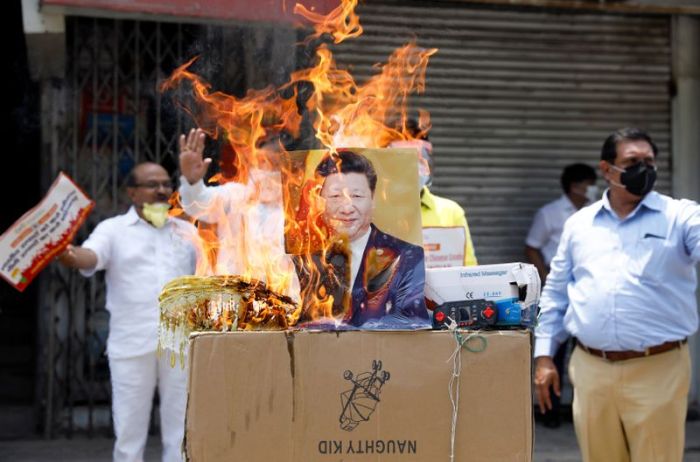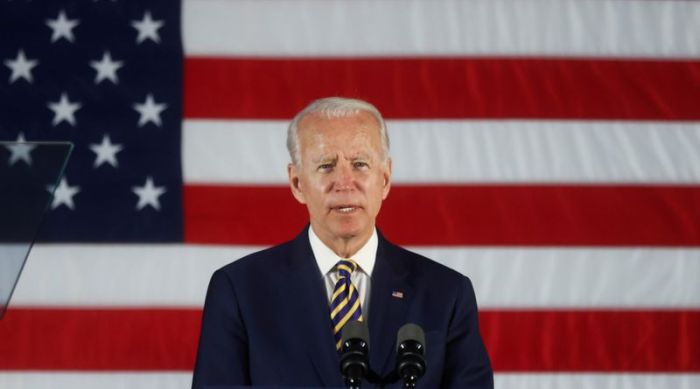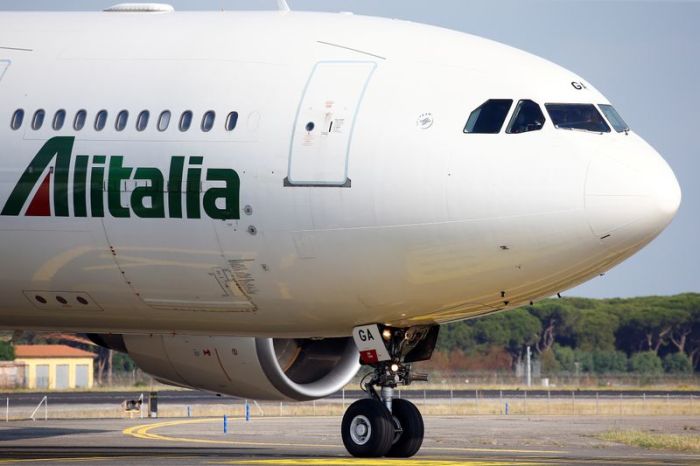WASHINGTON (Reuters) – Conflicting talk from Trump administration officials about “decoupling” the U.S. economy from China is running into a challenging reality: Chinese imports of U.S. goods are rising, investment by American companies into China continues, and markets are wary of separating the world’s biggest economies.
White House trade adviser Peter Navarro gave Asian markets a scare on Monday night by telling Fox News Channel that the U.S.-China trade deal was “over.” U.S. stock futures dropped, the dollar rose, and volatility indices climbed.
Navarro quickly backtracked on Monday night, saying he was referring to a lack of trust between the United States and China over the coronavirus outbreak. President Donald Trump also quickly tweeted that the deal was intact.
On Tuesday, National Economic Council Director Larry Kudlow praised Beijing, telling Fox Business Network “they’ve actually picked up their game” when it comes to the trade deal.
The damage-control efforts by the Trump administration come after Trump said last week that “a complete decoupling from China” was an option, overruling U.S. Trade Representative Robert Lighthizer, who had told lawmakers that decoupling was not realistic.
The Trump re-election campaign has made being “tough on China” a key part of his platform https://www.reuters.com/article/us-health-coronavirus-usa-election/blame-china-remake-economy-trump-pivots-to-new-election-message-amid-pandemic-idUSKBN22J1GT. The White House has blamed Beijing for the spread of the coronavirus that has killed more than 120,000 Americans, more than any other country. (See a graphic https://graphics.reuters.com/HEALTH-CORONAVIRUS-USA/0100B5K8423/index.html of the spread of the coronavirus in the United States)
But part of that message – that the United States is able and willing to walk away from its largest supplier – is challenged by on-the-ground realities.
U.S.-China trade is actually increasing, after the coronavirus caused major drops shortly after the trade deal was signed in January. U.S. exports to China rose to $8.6 billion in April, up from a 10-year monthly trough of $6.8 billion in February, according to U.S. Census Bureau data. Imports from China shot up to $31.1 billion from $19.8 billion in March, which marked the lowest monthly total in 11 years.
U.S. Department of Agriculture data showed soybean exports to China rose to 423,891 metric tons in April, more than doubling the 208,505 tonnes imported in March.
U.S. officials, including Lighthizer and Secretary of State Mike Pompeo and Treasury Steven Mnuchin, have recently affirmed China’s commitment to meet terms of the Phase 1 trade deal, which calls for China to boost purchases of U.S. farm and manufactured goods, energy and services by $200 billion over two years.
Pompeo, asked by syndicated radio show host Hugh Hewitt about prospects for a new cold war, said on Tuesday the U.S. economy was far more integrated with China’s than with the former Soviet Union.
“We have to think about this in a way that reflects that, because the challenges of American economic growth and prosperity are deeply intertwined today with the Chinese economy,” Pompeo said, adding that Trump was determined to protect U.S. interests.
Mnuchin, asked about decoupling in a Bloomberg-Invesco forum, said it would occur if U.S. companies were not allowed to compete fairly in the China’s economy.
A person familiar with both U.S. and Chinese thinking on the trade deal said Navarro’s comments appeared to be a “slip of the tongue,” reflecting his personal hawkish views on China and not administration policy.
The person also said Chinese officials have indicated that June imports from the United States were expected to show a dramatic increase after falls in recent months due to the outbreak.
STRONG INVESTMENT
U.S. companies had announced $2.3 billion in new direct investment projects in the first quarter of 2020, only slightly down from last year’s quarterly average despite the coronavirus, the Rhodium Group said in a recent study https://arraysproduction-0dot22.s3.amazonaws.com/rhodiumgroup/assets/icon/TWS-2020_Report_8May2020_Final.pdf – indicating that few U.S. companies are reducing their China footprint.
Bill Reinsch, a senior adviser and trade expert at the Center for Strategic and International Studies, said it took over 20 years for the U.S. and Chinese economies to grow together, and decoupling cannot be accomplished easily.
Some companies are leaving, not because of Trump, but because of rising Chinese wage rates and Chinese policies that have disadvantaged foreign-owned businesses, he said.
“If you’re in China to serve the Chinese market, you’re going to stay because you can’t serve it as well from the outside,” Reinsch said. “The president can’t simply order everybody to come home. Businesses will make rational, economic decisions.”
(Reporting by David Lawder; Editing by Heather Timmons, Jonathan Oatis and Tom Brown)
























